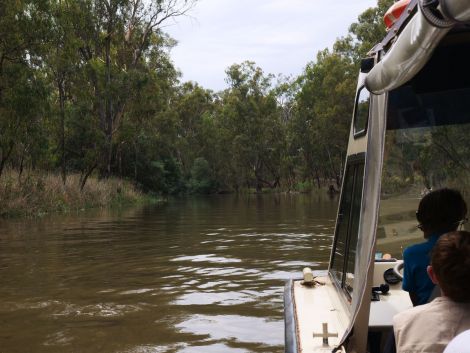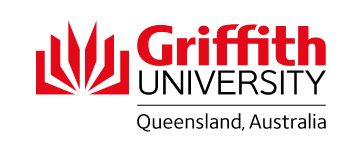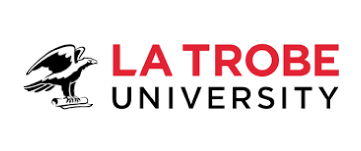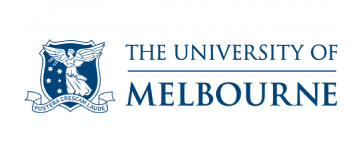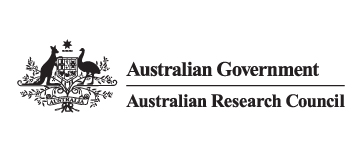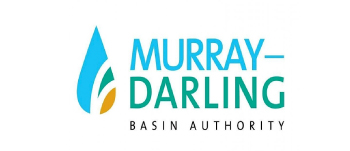Building capacity and collaboration within Australia’s water research sector
Conflict over water is one of the most pressing and contentious challenges for modern Australia and its resolution will require a cultural change in how Australians relate to and share water. No where is this more apparent than in the Murray-Darling Basin (MDB).
Cultural and historical analysis is essential to understanding the role of the MDB in Australian social and cultural life, the pre-existing conditions of current water disputes, and the formation of influential approaches to land and water management.
A new research project has commenced to enhance public understanding of the formation and evolution of cultural attitudes, values, norms, and practices relating to water in the MDB.
It will also build capacity and stronger collaborations within and beyond Australia’s water research sector by establishing a Water Cultures Network.
Through the activities of the Network its members will improve understanding of the water cultures of the MDB and demonstrate the value of social and cultural insights and methods to water policy development and management in this region and beyond.
Join our Network of researchers and managers interested in water and its role in Australian society
Water research in action
The Murray-Darling Basin Water Cultures Network is led by a team from Griffith University, La Trobe University, University of Melbourne, and the Australian National University, and funded by the Australian Research Council (Grant ID: SR200200322) and the Australian Government’s Murray-Darling Basin Water and Environment Research Program.
Although the primary focus of the Network is to help Murray-Darling Basin communities address entrenched issues surrounding water allocation, many of the insights and resources from this research are transferrable across a range of water management contexts and regions.
Image: Kayaking in the Gunbower Forest
Chief Investigators
Professor Sue Jackson
Sue Jackson is a cultural geographer at the Australian Rivers Institute, Griffith University. Her current research focuses on the interaction between Indigenous customary and state environmental governance and planning systems, as well as the meaning of water, its symbolic significance and material value. Sue leads the Social, Economic and Cultural Outcomes Theme of the MDB Water and Environment Program and has served on the Murray Darling Basin Authority’s Advisory Committee on Social, Economic, and Environmental Sciences since 2018.
Lesley Head
Lesley Head is Redmond Barry Distinguished Professor Emeritus in the School of Geography, Earth and Atmospheric Sciences at the University of Melbourne. She is a geographer who works on the cultural dimensions of environmental issues, including water. Current projects include ‘Social benefits of market-based policy instruments for carbon and water’ (ARC DP, with Lisa Palmer and Sue Jackson.
Professor Katie Holmes
Professor Katie Holmes is an environmental historian and Director of La Trobe University’s Centre for the Study of the Inland. Her current projects include the studies of drought and water cultures, and the ways communities in the Murray Darling Basin have navigated changing environmental conditions.
Associate Professor Ruth Morgan
Associate Professor Ruth Morgan is the Director of the Centre for Environmental History at the Australian National University on unceded Ngunnawal and Ngambri country. She has published widely on the climate and water histories of Australia and the British Empire, including her award-winning book, Running Out? Water in Western Australia (2015) and her recent co-authored book, Cities in a Sunburnt Country: Water and the Making of Urban Australia (2022). She was a Lead Author on the Water chapter in Working Group II of the Intergovernmental Panel on Climate Change's Assessment Report 6.
Researchers
Dr Margaret Cook
Dr Margaret Cook is a Research Fellow at the Australian Rivers Institute, Griffith University. She is an environmental historian who has published on water histories and climate-related disasters, with a particular focus on floods, culture and climate.
Dr Karen Twigg
Dr Karen Twigg is an environmental historian at La Trobe University’s Centre for the Study of the Inland, with core interests in oral history, gender and rural settlement. Her current research centres on changing responses to drought, water and climate in regional Victoria and within the Murray Darling Basin.
Jessica Urwin
Jessica Urwin is a PhD candidate in the School of History at the Australian National University. Her doctoral research considers the colonial, political, and environmental histories of the nuclear order in Australia, on which she has published several journal articles. She is particularly interested in considering the environmental histories and legacies of extraction, an interest that has both facilitated and been spurred by her involvement as a research assistant on the ARC Special Initiatives project ‘Water Cultures of the Murray Darling Basin’.
Events
Conflicted rivers by Professor Heather Goodall
Conflicted rivers: water and land across the upper Darling region
Drawing on decades of research with communities across the Murray Darling Basin, in March 2024 Australian environmental historian Professor Emerita Heather Goodall (University of Technology, Sydney) explored some of the histories of recent - and conflicted - water use on the upper Darling River and its tributaries. Tracing the recent histories of these conflicts demonstrates new alliances as well as deepening tensions around the Boobera Lagoon on the MacIntyre River near Boggabilla and the waterways around Brewarrina on the Barwon River. This seminar was co-sponsored by the Australia & Aotearoa New Zealand Environmental History Network and Prof. Goodall was introduced by Assoc. Prof. Ruth Morgan, Centre for Environmental History, ANU.
Indigenous fish traps and fish weirs
Indigenous fish traps and fish weirs on the Darling (Baaka) River
The Murray Darling Basin Water Cultures Network was created in 2022 to foster a community of people with an interest in the Basin to disseminate scholarship and create collaborative partnerships. Our inaugural public lecture, ‘Indigenous fish traps and fish weirs on the Darling (Baaka) River’ will be presented by:
- Sarah Martin
- Badger Bates
- Hubert Chanson
- Duncan Keenan-Jones
- Michael Westaway
Latest news
One-third of Australia’s coastal terrestrial aquaculture at risk from sea level...
04 Apr 2025
Study estimates 98 per cent of prawn sites and 50 per cent of prawn production would be impacted.
Australia can benefit from offshore industries: study
18 Mar 2025
Study finds nearly 3 million km² of ocean space across 97 countries for offshore wind energy and...
Study finds one kilogram compost contains up to 16,000 microplastic particles
17 Mar 2025
Each kilogram of waste material contained thousands of tiny pieces of plastics
Aggressive pest fish moving closer to Gulf of Carpentaria
10 Jan 2025
Research team find tilapia well established in major Queensland river system.
Media
An article published by Water Cultures team members, Katie Holmes and Karen Twigg, “Saving Hattah Lakes: changing masculinities and the campaigns for a national park, 1900-1960”, Australian Historical Studies, 7 April 2024.
View the article here
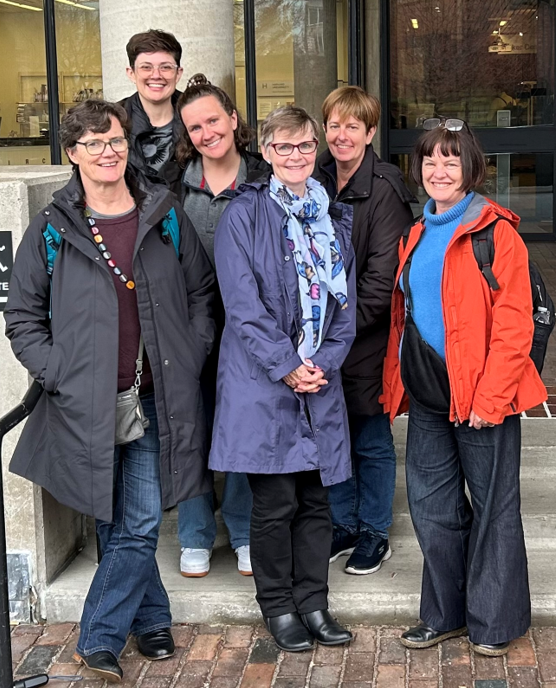
Left to Right: Lesley Head, Ruth Morgan, Jessia Urwin, Katie Holmes, Margaret Cook and Karen Twigg. (Unfortunately Sue Jackson could only join online).
Riverhood Symposium: Histories across time, place and waters
MDB Water Cultures CI Professor Katie Holmes hosted a symposium — Riverhood: histories across time, place and waters — between 9 to 11 April 2024 at Harvard University, USA, where she is the incumbent Gough Whitlam and Malcolm Fraser Chair in Australian Studies.
The symposium brought together 18 First Nations and non-Indigenous humanities scholars from North America and Australia to explore the more-than-human histories and cultures of rivers across the Pacific and Atlantic worlds. All participants presented a 30 minute paper in response to an article by Boelens et al. (2023) on Riverhood that interrogates the ‘different ways that rivers are imagined, defined, built, produced, and lived as socio-natural, political-economic, and cultural-symbolic systems.’
The symposium papers were ranged geographically from British Columbia, Northwest Mexico and Australia, temporally from First Nations’ Deep Time to hopes for a decolonised future, and thematically from forests and fish to governance and scientists. The entire Murray Darling Basin Water Cultures team presented on aspects of our ARC and MDB research from the case studies of the Hattah Lakes, Barmah-Millewa Forest, the Murrumbidgee, and lower Murray as well as ways of thinking about rivers from a scientist’s perspective. Issues of law, governance and First Nation’s ongoing cultural responsibilities underpinned the rich discussions on colonisation, riverine interventions and modifications, social justice, and the rights of rivers and nature to water flows. The symposium created a dynamic cross-disciplinary and international network of researchers who intend to produce a co-authored publication that directly responds to the concept of riverhood.
Professor Sue Jackson discusses the Murray Darling’s water history on Radio National
In the wake of another mass fish death in the Lower Darling in March 2022, Griffith University's Professor Sue Jackson spoke on Radio National on 25 March 2023 about the social conditions underlying the crisis in Murray Darling Basin water management. In a paper co-authored with Lesley Head written after the 2019 Menindee fish deaths, Sue Jackson writes that the model of the water cycle we all learned about in high school is missing a key element: humans. Sue and Lesley describe the settler colonial history of the Darling River and argue that we need to understand water as both social and natural.
The audio is available here: Sue Jackson on Murray Darling Basin water crisis.
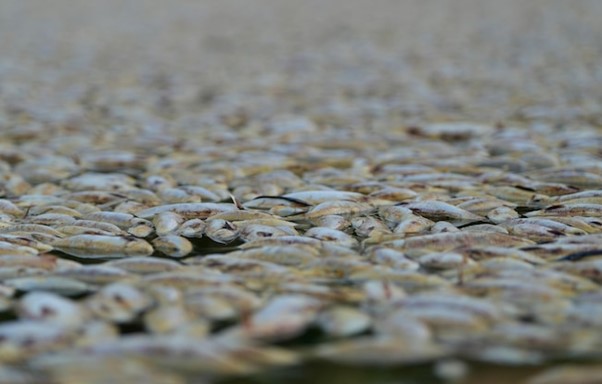
PAST EVENTS
'Rivers through time' Session
Water Cultures Team member, Lesley Head, presented at the River Country Community Day at the National Museum of Australia, Canberra on 15 October 2023. The session uncovered how the landscapes through which the Murray–Darling rivers flow are richly layered with the stories and lives of countless generations. Environmental historian Emily O’Gorman, Ngarrindjeri/Kaurna archaeologist Chris Wilson and geographer Lesley Head joined for a lively conversation that considered how thinking with the past can help us understand this region and ensure its future. More information can be found here.
The history, forecasting, recovery and future of flooding
Thursday 15 September 2022
5 pm – 7:30 pm AEST
A Brisbane based in-person and online seminar, hosted by the River Basin Management Society
- In-Person Attendance - Alliance Hotel - Spring Hill (Upstairs) - 5pm for 5:30pm start
- Online Attendance - Link provided once ticket purchased - 5:30pm start
2022 has seen devastating rainfall in many areas of Australia, with a large number of locations experiencing their wettest year on record (and it’s only August). This widespread and significant rainfall volume has led to devastating floods, sometimes in quick succession) causing widespread environmental, social and economic damage in areas already struggling from recent floods. These events have been described as ‘unprecedented’ in many circles, certainly based on gauge records alone. However, a look into the history books suggests that perhaps larger floods have occurred, while assessing potential impacts of climate change suggests future floods may be equally (or more) severe and more frequent. Understanding these complexities while also considering how we recover from such events requires a multi-disciplinary and collaborative approach.
Join us for an inspired evening delving into the record of floods past, our ability to use this to help predict those in the future, and a look at flood recovery efforts in historically disturbed catchments. We have 4 great speakers lined up! Nibbles and refreshments will be provided (or join some of us afterwards downstairs for dinner). Hang around afterwards to continue the discussion.
Panel presentation on water cultures of the Murray-Darling Basin
The Water Cultures of the Murray-Darling Basin Project was profiled at a panel session of the Australia Historical Society’s annual conference in July 2022 in Geelong, Victoria. The Panel session enabled the research team to share early insights from the case studies that are the focus of their project.
Speakers
Lesley Head, University of Melbourne
The Menindee fish kills as a crisis of modern water
Sue Jackson, Griffith University
River ontologies of the settler water cultures of the Riverina Creeks, southern NSW, 1880-1920
Katie Holmes, La Trobe University
‘A fine sheet of water’: Hattah Lakes
Ruth Morgan and Jess Urwin, ANU
River time in the Barmah-Millewa Forest
Water Cultures of the Murray-Darling Basin
Conflict over water is one of the most pressing and contentious challenges for modern Australia, and its resolution will require a cultural change in how Australians relate to and share water. Yet established approaches to this complex problem tend to narrowly frame water as a natural resource disconnected from cultural processes, and stress technical and regulatory solutions largely to the exclusion of cultural changes. The Murray-Darling Basin is a paradigmatic case that demonstrates the pressing need for analysis both in cultural as well as scientific terms.
Home to more than 3 million people, including 40 Aboriginal Nations, the Basin is Australia’s most productive agricultural region and its rivers sustain the needs of many vital ecosystems. Long a feature of the settler environmental imaginary, the Basin has been at the centre of globally significant water reforms this century that are re-shaping relationships with its waters and the places, relations, and other life forms they sustain in a warming world. The Panel will introduce the case studies and the wider project in which the Chief Investigators will contextualise the origins of ongoing water conflicts and the rise of prevailing approaches to land and water management in the Basin’s southern reaches.
